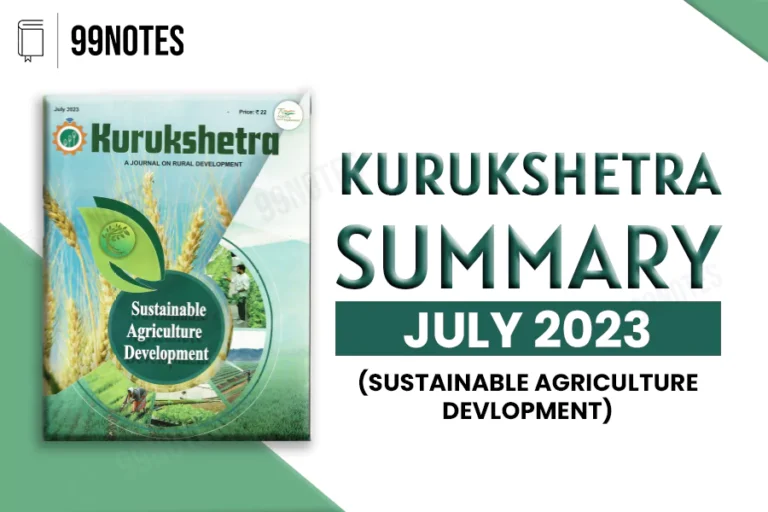25 February 2025: PIB Summary For UPSC
1. Innovative Biotech Solutions for Farming, Livestock, and Aquaculture
(Source – https://pib.gov.in/PressReleasePage.aspx?PRID=2105824 )
| Topic: GS3 – Agriculture |
| Context |
|
Power of Biotechnology in Agriculture, Aquaculture, and Animal Sciences
- Biotechnology is transforming agriculture, aquaculture, and animal sciences by improving crops, managing diseases, and promoting sustainable farming.
- Advancements in genome editing, molecular breeding, and biocontrol solutions are increasing productivity and resilience.
Agricultural Biotechnology: Innovations for Sustainable Farming
- Climate-Smart Crops
- A new drought-tolerant and high-yielding chickpea variety, SAATVIK (NC 9), has been approved for cultivation.
- This variety enhances yield under drought stress, improving food security in dry regions.
- Genome-Edited Crops
- Loss-of-function mutations have been introduced in rice genes to boost productivity.
- Genome-edited rice variety MTU-1010 shows higher yield and larger spikes with increased grain numbers.
- Genotyping Arrays
- The 90K Pan-genome SNP genotyping array IndRA for rice and IndCA for chickpea have been commercialized.
- These tools help in DNA fingerprinting, variety identification, and genetic purity testing for better crop development.
- Amaranth Genetic Resources
- A genomic resource database and SNP chip have been developed for amaranth.
- Screening techniques help identify amaranth varieties that combat obesity, aiding in nutritional improvements.
- Fungal Biocontrol
- A nano-formulation from Myrothecium verrucaria has been created to control powdery mildew in tomato and grape.
- This eco-friendly solution reduces the need for chemical pesticides.
- Kisan-Kavach: Safety for Farmers
- A protective suit has been designed to safeguard farmers from pesticide exposure.
- This innovation enhances health safety in agricultural settings.
Animal Biotechnology: Enhancing Livestock Health and Productivity
- India has the largest livestock population in the world, supporting rural livelihoods.
- Innovations in veterinary medicine and livestock management are improving disease resistance and productivity.
Aquaculture and Marine Biotechnology: Boosting Fisheries and Marine Resources
- Improved Shrimp Diet
- Fish meal is a key ingredient in shrimp feeds but has cost and sustainability issues.
- Research has shown that yeast-fermented soybean meal can replace fish meal, improving shrimp growth by 8.5%.
- CIFA-Brood-Vac Vaccine
- A new vaccine has been developed to prevent fish spawn mortality, ensuring healthy aquaculture stocks.
- Cost-Effective Fish Feed Formulation
- Interactive Fish Feed Designer (IFFD) version 2 helps create affordable fish feed using non-conventional ingredients.
Conclusion
- Biotechnology is revolutionizing agriculture, aquaculture, and animal sciences by enhancing crop resilience, livestock health, and marine productivity.
- These innovations contribute to food security, disease management, and sustainable farming.
- As research progresses, biotechnology will continue to strengthen global food systems and environmental sustainability.
| Practice Question: Discuss the role of biotechnology in transforming India’s agriculture and aquaculture sectors. How can these innovations contribute to sustainable food production and environmental conservation? (150 Words /10 marks) |
Check out 24 February 2025: PIB Summary For UPSC

